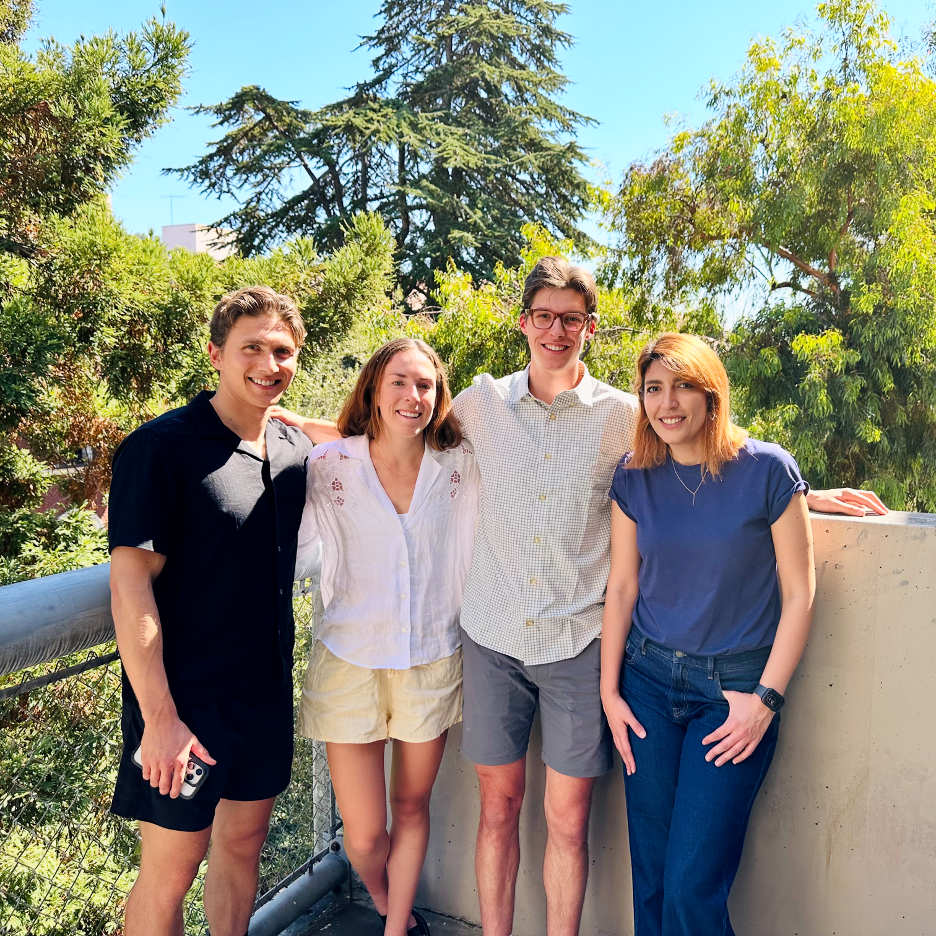MRED+Ds win Hack-A-House competition, advance to grand prize summit at Harvard

Each year, Ivory Innovations at the University of Utah hosts the Hack-A-House competition, where student teams from across the country pitch an innovative idea to advance housing affordability. Three teams of MRED+Ds competed in the 24-hour hackathon in September, and one of them won first prize in their category. On Friday, October 25, Holz Haus Hackers will live pitch their idea for a Mass Timber Cooperative at the 2024 Ivory Prize Housing Innovation Summit in Cambridge, Massachusetts. Before their big day, we asked them a few questions about their creative process and how the MRED+D network helped shape their idea. Read about their work, and be sure to tune into the Summit livestream to cheer the Holz Haus Hackers on and vote for them to win the grand prize!
How did you come up with your idea for the Hack-A-House competition?
The prompt for our category pushed us not to do something new, but rather to look at existing technologies and help scale them in the U.S. We learned about mass timber in RDEV 200: Construction + Development Project Management, so we came in wanting to work on mass timber.
Mass timber exists in the U.S. but is not feasible yet. Why not? It is used more commonly in other parts of the world, like Austria. How can we bring what they’re doing well in other countries and apply that to a U.S. context?
We also wanted to target the supply of mass timber, and not demand. Around midnight during the competition, we stumbled across an article from Michigan State University that assessed the feasibility of a mass timber facility in Michigan. We were able to connect that to what we knew about mass timber production in Austria and models that had failed in the U.S.
The prompt also pushed us to something scalable, so although our concept was focused on Michigan, it could be scaled to other places.
What was it like working on an idea for only 24 hours? How did that impact your creative process?
The 24-hour time period was a really good constraint. It forced us to be more creative and think quickly. Our best ideas came after midnight. We didn’t come up with our idea for a cooperative structure until after 3 a.m. Some of our 3 a.m. rudimentary math wasn’t perfect, but it was mostly right.
There were other MRED+D students [on other teams] working too, and it was really inspiring to work alongside so many other people who cared so much about innovation in the built environment.
Even though we all weren’t sleeping, everyone was in a good mood. We ordered pizza and ate together and critiqued each other’s ideas. If it had just been the four of us in a room, it wouldn’t have been as fun.
Talking with each other about our ideas at 1 a.m. in Bauer Wurster Hall was probably the most fun part.
Were there any Berkeley classes or professors that were particularly helpful?
Zac Shore, who teaches RDEV 200, gave us a lot of feedback on our idea. In our wood superstructures lecture, he taught us about the theory behind mass timber as a building material. But he is also an active developer and has built projects with mass timber, so he was able to share his perspective from using it in the field. He helped us understand the pain points in mass timber manufacturing.
Paul Mayencourt and Philip Tidwell are mass timber experts and teach at the College of Environmental Design, and it was so helpful to have them as a resource.
Dan Fedder, who teaches RDEV 220: Foundation Principles of Real Estate Development Finance, has a lot of investment experience and helped make our pitch and presentation much better.
What excites you the most about this idea?
There has been a great support system from people around the country who want to scale mass timber. A lot of people have been working on this for a while, and we are excited to just be riding that wave.
It’s also been amazing to see how widespread the MRED+D alumni network is. One of the Class of 2024 students is actually from around Saginaw, Michigan, which is the location for our MTC concept. She reached out to us to talk to us about the area and introduce us to people she knows in construction there.
Where did the name Holz Haus Hackers come from?
We came into the challenge wanting to do something with mass timber, so we wanted our team name to have something related to wood. Holz means wood in German. Holz Haus means wood house, but a better translation might be “log cabin.” It’s meant to evoke something rustic.
What’s next for your concept?
We’ll be pitching at the 2024 Ivory Prize Housing Innovation Summit on Friday, October 25. The audience will select the winner, and anyone watching the livestream can vote. We’d love the support of the entire MRED+D network so we can bring home the grand prize!